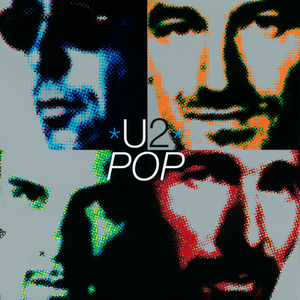Published on Nov 19, 2004
[Editor’s Note: An earlier version of this review appeared
in On The Town
magazine on March 18, 1997.]
I was a teenage U2 fan.
Well, actually not, I confess, since by the time “Sunday Bloody
Sunday” hit I was already well into my college years. My point is
that I operate, as many do, from the perspective of a long-time fan
of these four boys from Dublin who made good — very, extremely,
global-superstar-type good — with a combination of searing,
shimmering guitars and challenging, spiritually-charged lyrics.
What made U2 special in the eyes of many early fans wasn’t just
that they had the courage to be sincere; it was that they were
deeply passionate in their sincerity, fusing a surprisingly mature
idealism and spirituality to the dynamic power of guitar-driven
rock and roll (for a look at this phenomenon at its pinnacle, see
the band’s 1987 masterpiece
The Joshua Tree
). Adapting to changing times, their answer to 1990s knee-jerk
cynicism was initially to try to subvert it, transforming
themselves on stage and in videos during the
Achtung Baby–
Zooropa phase into a parody of what they abhorred the most:
materialism, shallowness, hucksterism and immature, aimless angst.
Coming out the other side of this transformation, though, as they
hop furiously onto the electronica bandwagon, U2 appears to have
been at least partially absorbed by the abyss into which they once
gazed. Or have they?
First reaction to
Pop: what is the long-time U2 fan to make of the single
“Discotheque,” all cascading special effects and muddled, surreal
lyrics? Where is the reason for this song, the meaning driving it?
Once this band challenged itself and the world to discover a sense
of purpose with the likes of “I Still Haven’t Found What I’m
Looking For”; now its parodies of empty-headed cultural faddism
(which is what “Discotheque” appears to want to be) themselves
carry no sense of purpose.
The music is clever, to be sure — the sonic manipulations and
sharp melodic turns of songs like “MoFo” and the pretty “If You
Wear That Velvet Dress” are technically admirable and moderately
entertaining — but where is the emotional fire of “Where the
Streets Have No Name,” the unifying anthem of “Pride,” the furious
energy of “Even Better Than the Real Thing”? Where are the guts of
this band, the guts they once courageously spilled before the
world?
The answer is that they’re in here still, but half-buried now
underneath the layers of techno-goop applied to the music by
producer Flood and electronica consultant Howie B (does anyone in
music have two full names any more?). Read the lyric sheet and
you’ll discover, like gold glittering in the twilight, some of
Bono’s most adventurous and often brilliant lyrics. The album’s two
principal ballads, the quietly intense “If God Will Send His
Angels” and the stark, brutal “Wake Up Dead Man” are in fact two of
Bono’s gutsiest attempts to wrestle his own faith to the ground:
“Jesus never let me down, you know Jesus used to show me the door /
then they put Jesus in show business now it’s hard to get in the
door.” The old fire can also be found in the
Achtung Baby-ish “Staring at the Sun” and “Last Night on
Earth.”
Upon investigation, there is a good — maybe even a great —
album hiding in here underneath all the gadgetry. I’d love to see
what the results would be if the band chose to revisit and remix
this album today in their current back-to-basics mode. Freed from
most of the jarring, arbitrary noise that stifles this album
emotionally, the songs might yet reveal their true qualities. As it
is, we’re stuck with an album full of U2 trying too hard to stay
current for a teenage audience it has long since outgrown…
and it’s not a pretty sight.
